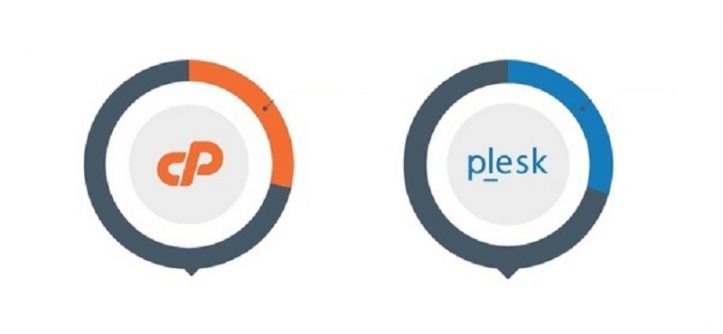When you’re looking for a web hosting service, you’ll find the market dominated by two control panel platforms that are favored by many companies out there. And while they might look similar on the surface, there are some intricate differences under the hood that are important to be aware of. Familiarizing yourself with both platforms is a good idea if you’re planning on working with hosting companies on a regular basis, but once you’ve done some research on the topic, you’ll likely quickly reach the same conclusion that many others come to nowadays – cPanel, in its current state, tends to work much better than Plesk and offers a better package of features than it.
User interface
The main point of a hosting control panel is to give you a clean interface to work with, as opposed to the ugliness of the command line and other similar tools (no offense intended at those who prefer the command line, of course). This makes the state of a platform’s user interface an actual usability concern and not just a cosmetic issue, and both cPanel and Plesk handle this with a lot of attention to detail.
However, by modern standards, Plesk can look a bit outdated and clunky, while cPanel offers a much more streamlined experience that’s simply a pleasure to the eyes. Not everyone might care about this aspect of the tool that much, and that’s a fair point, but if you’re going to be spending a lot of time clicking around the control panel, you might as well make sure that you’re going to enjoy the experience while doing it.
Features
Plesk and cPanel can both give you access to a variety of useful features to run your website, and there isn’t really anything lacking on either side. There is a huge difference, however, in how those features are organized and presented to the user, and how you access them.
The organization of cPanel’s menus should work far better for most people’s needs, especially those running something like a CMS or another popular type of website. You’ll find the most commonly used features brought to the front right where they should be, and there is an intuitive hierarchy to everything that makes finding the right option a walk in the park.
That’s not to say that Plesk is significantly worse in this regard, but you’ll come to appreciate the extra effort the developers of cPanel have put into the layout of their menus and the overall navigation of the site. If you have multiple sites running and frequently need to change settings on many of them, you’ll love the way cPanel makes it easy to switch from one site to another without losing your context.
Support
Both cPanel and Plesk are supported by a variety of hosting services, but nowadays, cPanel hosting tends to dominate the market by a large margin. There are many reasons that can possibly be used to explain that, but the overall intuitiveness and speed of use presented by the platform are probably around the top of the list.
If you need something that is pretty much guaranteed to be supported and want to make sure that you won’t have to spend any extra time seeking out your own control panel platform, configuring it and so on, you should look into a company that offers cPanel hosting. If there is a choice between the two, check the version – sometimes the company might be offering a newer release of Plesk and an older version of cPanel, which might make Plesk a more attractive option in that case.
There are also cases where you will be expected to do some more manual setup on your chosen control panel system, and cPanel will prove to be a much more viable option in those situations, especially for users without that much experience with hosting in the first place. Plesk has made some changes in recent times that have made the service much better for inexperienced users, but it still has some bases to cover, unlike cPanel which is in a very good state as it is.
In the end, you’ll find that both cPanel and Plesk can do similar things and they do them in somewhat similar ways, but cPanel is often a much better option when it comes to intuitiveness, ease of use, and long-term support. There is a reason why so many people continue to trust it as their default choice for newly setup websites, and you should definitely give it a try if you haven’t already.





Leave a Reply